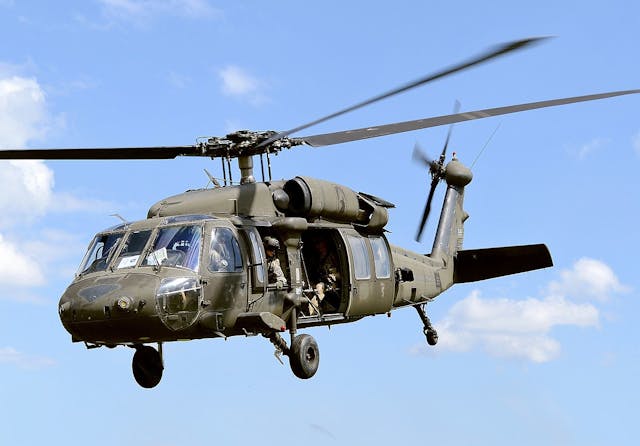UH 60 Helicopter: Advanced Avionics and Battle Systems
UH 60 Helicopter: Advanced Avionics and Battle Systems
Blog Article
The Duty of Airplane fit Worldwide Transportation and Trade Characteristics
The advancement of aircraft has actually indelibly transformed worldwide transportation and profession characteristics, assisting in unmatched levels of connectivity and efficiency. Through the establishment of robust air cargo networks, services can currently browse global markets with impressive rate and agility, thus redefining supply chain techniques. This improvement is not without its difficulties, as the aviation market grapples with sustainability issues and regulatory stress. As we explore the complex effects of airplane on worldwide profession, it is necessary to take into consideration exactly how these variables will form the future landscape of air travel and its duty in the economic climate.

Development of Air Transport
The evolution of air transport has been noted by substantial technological advancements and advancements that have actually transformed the method people and goods relocate across the world. From the Wright siblings' first powered trip in 1903 to the development of supersonic jets, each landmark has highlighted the relentless pursuit of performance and speed in flight. Early aircraft were mostly basic, restricted by engine power and architectural stability. Nevertheless, the intro of advanced materials and aerodynamics in the mid-20th century caused substantial improvements in airplane efficiency, security, and integrity. uh 60.
The last component of the 20th century observed the appearance of commercial air travel as a practical mode of transportation, identified by the introduction of jet engines, which changed flight by significantly lowering flight times. Furthermore, innovations in navigating and interaction technologies have enhanced functional performance and safety, enabling even more complicated flight routes and timetables. The surge of air freight in parallel with traveler services has actually additionally highlighted the flexibility of aviation. As we want to the future, emerging modern technologies such as electrical and autonomous aircraft assurance to redefine the air transport landscape, guaranteeing continued advancement and adaptation to international demands.
Influence On Global Profession
Air transportation has actually exceptionally improved global profession by facilitating the swift motion of products throughout vast distances. This expedited logistics capacity permits companies to respond rapidly to market needs, thus improving supply chain performance. The ability to move perishable products, high-value items, and time-sensitive products has actually opened up new markets and chances for different markets, dramatically affecting trade patterns.
Furthermore, the development of air cargo networks has actually cultivated globalization, making it possible for business to resource products and products from different components of the globe seamlessly. This interconnectedness decreases preparations and prices, allowing companies to stay affordable in an increasingly worldwide industry. In addition, air transportation plays an important function in shopping, where customer expectations for quick shipment have driven a surge sought after for air cargo solutions.
The effect of airplane on international profession encompasses the production of critical trade paths, linking areas and facilitating global partnerships. Nations that purchase air transportation framework usually experience boosted financial development and increased foreign straight financial investment. Generally, the development of air transportation has not only changed the logistics landscape however has also become an important component in the dynamics of international profession.

Economic Advantages of Aviation
A durable aviation market generates considerable financial advantages, adding to work creation, tourism, and total economic development - uh 60. The air travel industry sustains numerous tasks globally, ranging from straight employment in airline companies and airports to indirect functions in fields such as hospitality, transportation, and logistics. According to market records, for every work in the aeronautics market, approximately 3.5 extra work are created in the more comprehensive economy
Tourist is a critical aspect of the financial advantages originated from air travel. Flight assists in international tourism, enabling tourists to discover varied locations, which consequently promotes local economic situations. Countries that buy their aeronautics framework typically experience raised tourist arrivals, resulting in higher costs on solutions such as attractions, restaurants, and hotels.

In addition, air travel boosts worldwide connection, allowing businesses to access brand-new markets and sources effectively. This connectivity fosters worldwide trade, permitting the fast movement of goods, which is crucial in today's globalized economic climate. As a result, sectors such as shopping and production advantage greatly from reliable air transport, additional driving economic development. On the whole, the air travel field continues to be a foundation of economic Recommended Site vigor, emphasizing its important role in shaping modern-day economic climates.
Difficulties Facing the Aeronautics Industry
Navigating an intricate landscape of regulative, ecological, and economic difficulties, the aeronautics industry faces considerable hurdles that endanger its sustainability and development. Regulations surrounding safety and security and safety are continually progressing, demanding ongoing compliance and adaptation from producers and airline companies (uh 60). This can lead to enhanced functional costs and resource allowance that interferes with innovation and expansion efforts
In addition, environmental issues have actually become vital, with growing scrutiny over carbon discharges and sound pollution. The sector is under stress to adopt greener practices and modern technologies, which often require substantial financial investment in r & d. Balancing these environmental responsibilities with the demand for flight presents a substantial obstacle.
Financial variations, such as rising fuel costs and geopolitical uncertainties, even more make complex the landscape. Airline companies frequently come to grips with unstable operating expense and fluctuating guest demand, which can impact profitability and long-term planning. Labor lacks and skill gaps in vital locations add another layer of informative post intricacy, hindering functional efficiency.
Ultimately, addressing these complex obstacles is necessary for the air travel market to maintain its crucial role in international transport and trade, while guaranteeing resilience and flexibility in an increasingly competitive market.
Future Trends in Air Travel
Emerging technologies and changing customer preferences are positioned to reshape the future of air traveling substantially. The integration of expert system and artificial intelligence is anticipated to improve functional efficiency, simplify flight terminal processes, and boost client service. Anticipating analytics will promote much more exact demand forecasting, enabling airlines to maximize flight timetables and prices designs.
Sustainability is becoming a crucial chauffeur in air traveling, with the air travel industry progressively focused on minimizing carbon emissions. Technologies in aircraft layout, such as hybrid and electric propulsion systems, are being discovered to meet ecological targets. In addition, the adoption of lasting aviation gas (SAFs) is anticipated to play an important role in accomplishing net-zero emissions by 2050.
Consumer choices are changing towards customized traveling experiences. Airline companies are purchasing advanced data analytics to customize services and enhance client involvement, ensuring a much more personalized trip from scheduling to arrival. Additionally, the increase of remote job may lead to enhanced need for leisure travel, as people look for to incorporate work and wikipedia reference getaway.
Verdict
The development of air transport has transformed global trade, producing significant financial benefits while also presenting obstacles that require critical management. The continuous adaptation of the aviation sector will be necessary for sustaining its payments to the worldwide economic climate.
The latter component of the 20th century experienced the appearance of industrial aviation as a sensible setting of transport, identified by the introduction of jet engines, which changed air travel by significantly lowering trip times. The rise of air freight in parallel with traveler services has actually further emphasized the adaptability of aviation. Furthermore, air transportation plays an important role in shopping, where consumer assumptions for fast distribution have driven a rise in need for air freight solutions.
Overall, the development of air transportation has not just changed the logistics landscape however has additionally become an essential component in the characteristics of international trade.
Sustainability is coming to be a key vehicle driver in air travel, with the air travel industry progressively concentrated on reducing carbon emissions.
Report this page